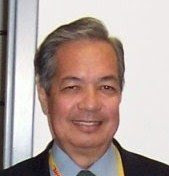The recent report of a possible strike by PAL rank and file employees should force interested government overseers to come face-to-face with the reality that current managers at the airlines have: the structures in place at “legacy airlines” are no longer tenable. And this is most glaring when it comes to manpower usage.
Examples abide: airlines from Pan Am to TWA to SAS have either gone bankrupt or sold out or vastly reorganized. To cope with the need to reduce manpower costs many airlines, like SAS in the Los Angeles area, have dissolved entire workforces and replaced them with general sales agents (GSA) and/or handling companies. PAL itself has adopted such a structure in their USA sales and operations organizations.
And news of airlines in trouble continues to dominate the global business place. Just read about Japan Airlines’ present predicament which is still unresolved.
What solutions are there for PAL?
As any human resources manager worth their salt would tell you, costs of maintaining a legacy structure is prohibitive. Salary levels are usually set to reward longevity of employment rather than productivity and high performance. Each employee represents not only inflated wages ( versus current industry standards) but also a set of benefits fashioned out during a long-ago, more prosperous time. Today’s realities require that manpower costs be cut to the bone.
And this is what Lucio Tan’s team seems to be doing within its Philippine organization. They’re trying to reduce PAL’s per-passenger-mile costs so that they can compete with the likes of Cebu Air and Air Philippines, relatively new carriers not saddled with “legacy” expenses.
And PALEA, the union representing the airline’s rank and file membership is rightfully concerned and has threatened strike action. A scary thought considering the global financial crisis. An effective strike could totally cripple PAL and make it an unviable commercial venture. What is to stop PAL from saying goodbye to its domestic business? Or focus only on profitable trunkline routes?
As part of its strategy, PALEA has openly expressed its desire to have the government intervene, as it has done so in the past ( which is , in many respects, the primary reason that PAL’s employment rolls have ballooned). It is an election year and politicians, of course, want to appear that they are on the side of “labor”.
I believe it is time for all the parties concerned to sit down and mull creative alternatives. Employees interests need to be considered, for sure, but the airline needs to make a profit and survive. What to do?
Can alternative, positive uses of an obviously valuable, well trained work force be found? I believe so. Many global carriers have outsourced their reservations apparatus to third party providers, so why not convince them to outsource it to PAL? Why not organize and train employees who might otherwise be laid off into a new company that will man telephones and computer terminals handling reservations and service calls for the world’s major carriers? These are employees who have years and decades of experience on the front lines of passenger handling and would be in a position to provide callers with information and guidance based on real life knowledge versus agents who can only convey what they see on a screen.
As for the mechanics and engineers who also comprise a big chunk of the employee base, they too can be organized into a provider of services to many airlines at a fraction of what it is costing the latter. The three parties should fully exploit one major advantage the Philippines has to offer: after all is said and done our people can provide real value to global customers at a much lower cost. Rather than engage in a wasteful exercise on the union’s part by going on strike, or engage in brutal cost cutting measures such as Lucio Tan could undertake, both parties should explore alternatives. And the government can do its part, i.e. to mediate a positive course of action. Its past practice of shoving commercially unpalatable solutions down the airlines throats have no place in the business world, where the prevailing motto is PROFIT or PERISH!!
Leandro D. Quintana
LDQ44@AOL.COM BLOG: ldq1944.blogspot.com
The author is a free lance journalist currently based in the Western USA.
He held various editorial positions at Philippine News and Asian American News between 1974 and 1981. For the past 30 years he was employed by a company that eventually was purchased by Deutsche Post and merged with DHL and from which he recently retired. He was a PAL employee at Cagayan de Oro, Cebu and Manila from 1962 thru 1971. His last PAL assignment was in its public relations department.
Thursday, February 4, 2010
Subscribe to:
Post Comments (Atom)
.jpg)
.jpg)
No comments:
Post a Comment